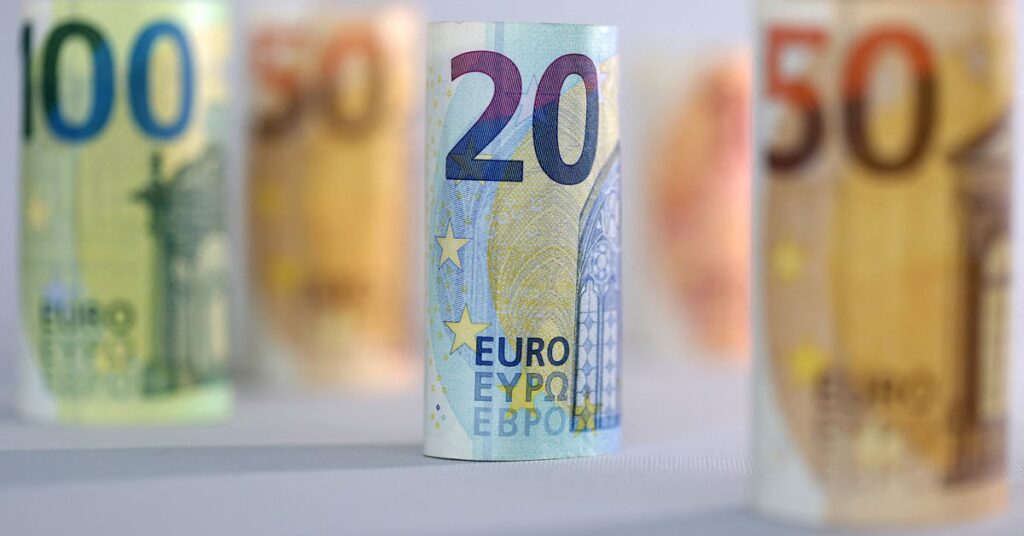[1/2]Euro banknotes are seen in this illustration taken July 17, 2022. REUTERS/Dado Ruvic/Illustration Acquire Licensing Rights
JACKSON HOLE, Wyoming, Aug 26 (Reuters) – It may be too early for the European Central Bank to pause interest rate hikes now as an early stop in the fight against inflation could force the bank to exert even more pain on the economy later, Latvian policymaker Martins Kazaks said on Saturday.
The ECB has raised rates at each of its past nine meetings to arrest runaway inflation but policymakers are now contemplating a pause as recession risks loom, inflation slows and wage growth remains moderate.
“Given the information that we have now – and there is of course more data to come – I would say that another modest increase would be playing it safer, rather than delaying it and then risking having to do much more later in the year or early next year,” Kazaks told Reuters on the sidelines of the annual gathering of central bankers and economists in Jackson Hole, Wyoming.
Markets see a roughly 50% chance of another hike in September but a move by the end of the year is seen as very likely.
“We can cut rates if we raise them too much and we can cut quite soon,” he said, “But if we’ve done too little, then we may have to raise them even more, so it’s cheaper to do it sooner than later.”
Still, the Latvian central bank governor added that he will go into the Sept. 14 policy meeting with an open mind and needs to see new staff projections before committing.
Even if the ECB opts for a hold, it needs to make clear that its job is not yet done and more policy tightening could be on the cards, Kazaks added.
ECB projections currently see inflation returning to its 2% target only in late 2025 and Kazaks argued this was too late.
A key reason why some are contemplating a pause is that economic growth indicators are now pointing to a contraction in the third quarter, despite what could be a record-breaking tourism season.
Industry is already in recession and services are also softening, with both survey and hard indicators coming below expectations.
While growth will be flat over the rest of the year, Kazaks said a deep recession was not on the cards as the bloc is still displaying resilience and some softening of the labour market was actually desirable to tame inflation.
Once rates peak, a plateau should be held for some time and the ECB should only start cutting rates when projections start showing inflation was at risk of coming back below 2%.
“I would be happy to start cutting the rates when the inflation projection – so the outlook and not actual data – starts to undershoot our 2% target in a consistent manner,” he said.
Markets see a rate cut only in the second half of 2024 and Kazaks said he did not consider this inconsistent with the macroeconomic outlook.
Reporting by Balazs Koranyi
Editing by Marguerita Choy
: .


